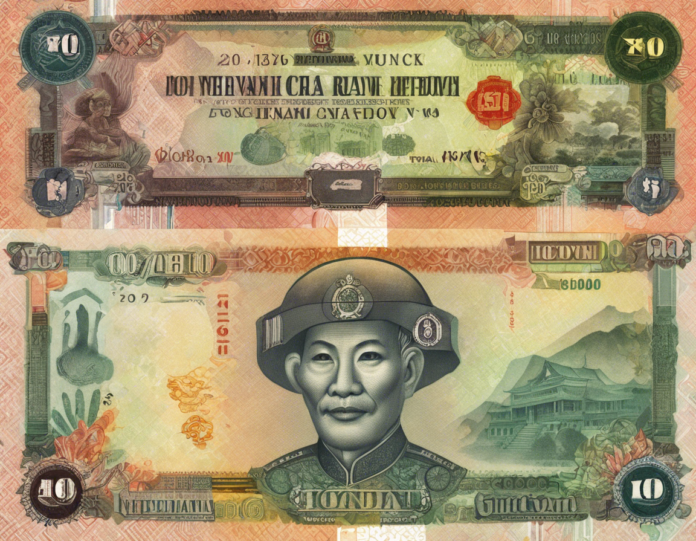Introduction
Vietnam, with its stunning landscapes, rich culture, and delicious cuisine, has become a popular destination for travelers from around the world. One aspect that visitors should familiarize themselves with before visiting Vietnam is the currency. The Vietnamese dong (VND) is the official currency of Vietnam and comes in various denominations. In this comprehensive guide, we will explore everything travelers need to know about Vietnam’s currency to ensure a smooth and hassle-free trip.
Understanding the Vietnamese Dong
The official currency of Vietnam is the Vietnamese dong, denoted by the symbol “₫” and the currency code VND. The dong is issued by the State Bank of Vietnam and is commonly used for all transactions within the country. While US dollars and some other major currencies are also accepted in tourist areas, it is advisable to use the local currency for a better exchange rate and convenience.
Denominations of Vietnamese Dong
The Vietnamese dong is available in various denominations, including banknotes and coins. The most commonly used banknotes are 1,000₫, 2,000₫, 5,000₫, 10,000₫, 20,000₫, 50,000₫, 100,000₫, 200,000₫, and 500,000₫. There are also coins in denominations of 200₫, 500₫, 1,000₫, 2,000₫, and 5,000₫. Travelers should be aware of these denominations to handle transactions efficiently while in Vietnam.
Exchanging Currency
Travelers can exchange their foreign currency for Vietnamese dong at banks, exchange counters, hotels, and authorized currency exchange shops across Vietnam. It is advisable to compare exchange rates and fees to get the best deal. Additionally, ATMs are widely available in major cities and tourist areas, allowing travelers to withdraw Vietnamese dong using their debit or credit cards. However, it is recommended to inform your bank of your travel plans to avoid any issues with card transactions.
Currency Exchange Rates
The exchange rate between your home currency and the Vietnamese dong may fluctuate. It is recommended to check the current exchange rate before your trip to have a better understanding of how much your money is worth in Vietnamese dong. Various online currency converters and financial websites provide real-time exchange rate information to help travelers plan their budget effectively.
Using Credit Cards
While cash is widely used in Vietnam, major credit cards such as Visa, MasterCard, and American Express are accepted at upscale hotels, restaurants, and larger stores in urban areas. However, it is important to note that smaller vendors, local shops, and markets may only accept cash. It is advisable to carry an adequate amount of Vietnamese dong for such transactions to avoid any inconvenience.
Tips for Handling Currency in Vietnam
- Carry small denominations: Having smaller denominations of Vietnamese dong is useful for making purchases at local markets, street vendors, and for public transportation fares.
- Be cautious with large bills: Some smaller establishments may not accept high-denomination banknotes, such as 500,000₫. It is advisable to have a mix of smaller bills for various transactions.
- Count your change: When making a purchase, especially at markets or smaller shops, it is recommended to count your change carefully to ensure accuracy.
- Secure your belongings: Pickpocketing can occur in crowded areas, so it is essential to keep your money and valuables safe in a money belt or secure bag.
Budgeting for Your Trip
When planning your trip to Vietnam, it is essential to budget for expenses such as accommodation, meals, transportation, sightseeing, and souvenirs. By estimating your daily expenses and converting them into Vietnamese dong, you can have a better understanding of how much money you will need during your stay in Vietnam. It is also advisable to set aside some extra cash for emergencies or unexpected expenses.
Conclusion
Understanding and managing the Vietnamese dong is crucial for travelers visiting Vietnam. By familiarizing yourself with the local currency, denominations, exchange rates, and tips for handling money, you can enjoy a seamless and enjoyable trip to this enchanting Southeast Asian country. Whether you are exploring bustling cities, serene countryside, or stunning beaches, having a good grasp of Vietnam’s currency will enhance your travel experience and make your journey unforgettable.
FAQs
-
Q: Can I use US dollars in Vietnam?
A: While some tourist areas and businesses may accept US dollars, it is advisable to use the Vietnamese dong for better exchange rates and convenience. -
Q: Are ATMs widely available in Vietnam?
A: Yes, ATMs are prevalent in major cities and tourist areas in Vietnam, allowing travelers to withdraw Vietnamese dong using their debit or credit cards. -
Q: How should I handle currency exchange in Vietnam?
A: Travelers can exchange their foreign currency for Vietnamese dong at banks, exchange counters, hotels, and authorized currency exchange shops for a better deal. -
Q: Which credit cards are widely accepted in Vietnam?
A: Major credit cards such as Visa, MasterCard, and American Express are accepted at upscale establishments in urban areas of Vietnam. -
Q: What denominations of Vietnamese dong should I carry?
A: It is advisable to carry a mix of smaller denominations of Vietnamese dong for various transactions, especially at local markets and street vendors.









